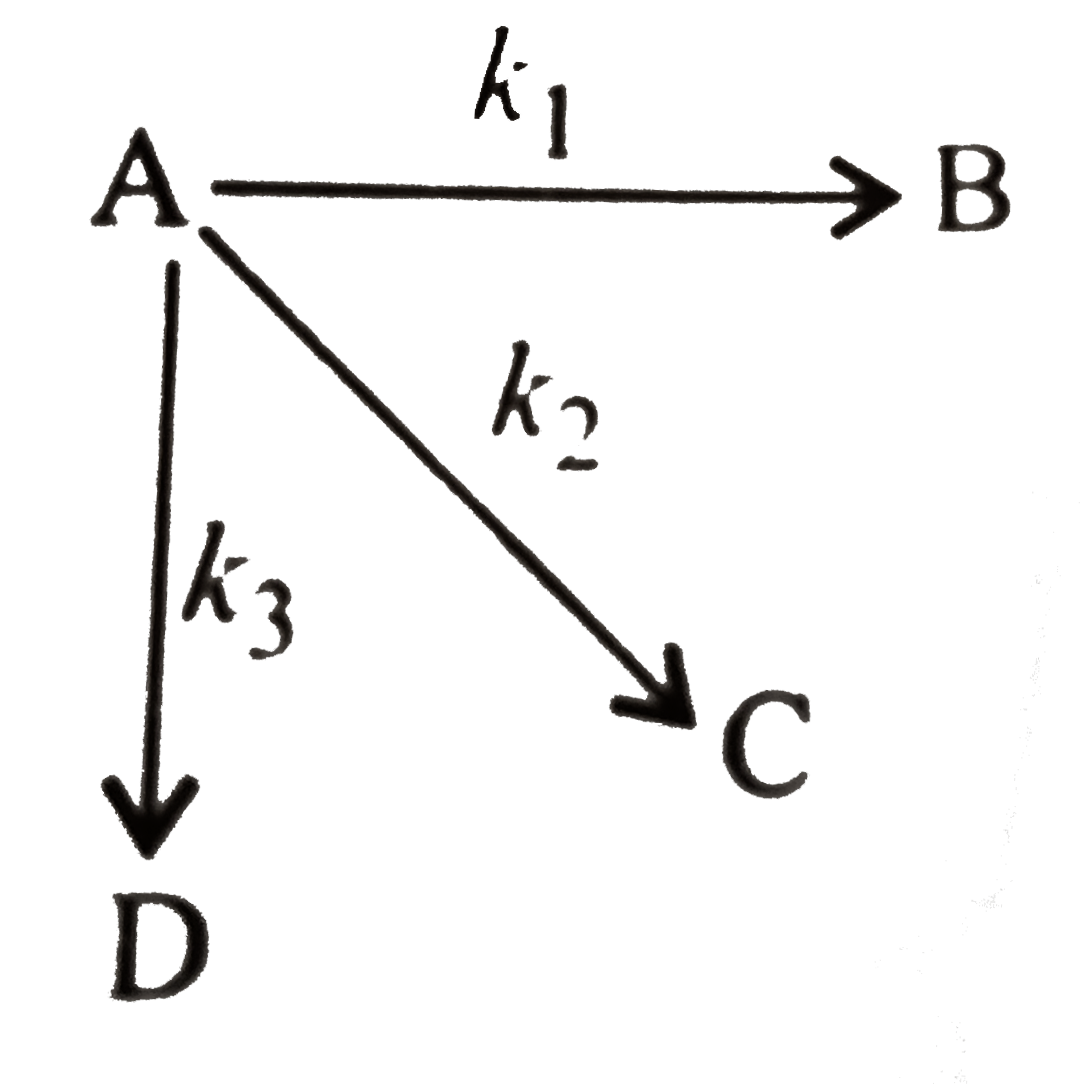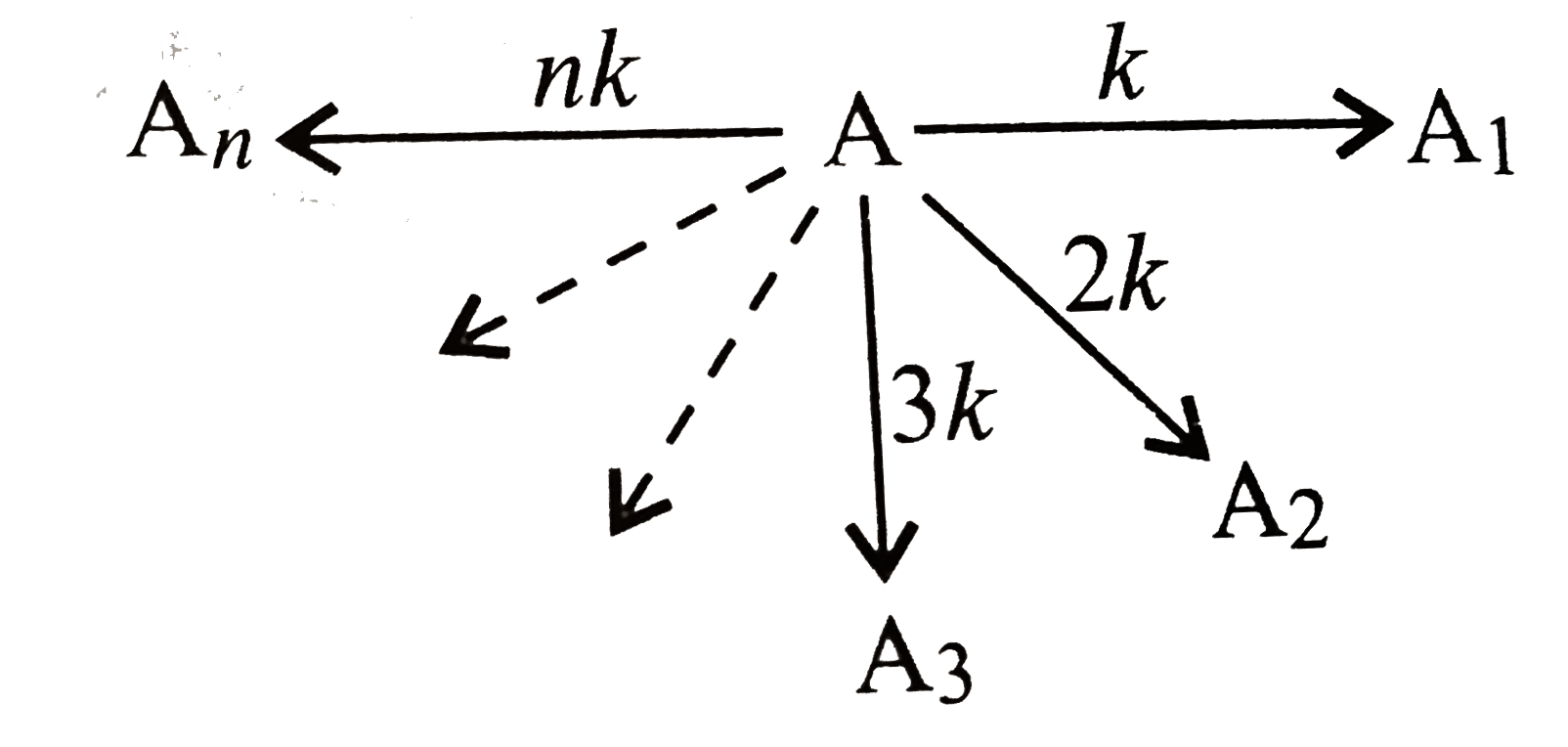Mechanism of the reaction is:
What is −d[A]dt ?
Video Solution
Text Solution
−d[A]dt=k1[A]+k2[A]+k3[A]
=[A](k1+k2+k3)

|
Updated on:21/07/2023
Topper's Solved these Questions
- BOOK - CENGAGE CHEMISTRYCHAPTER - CHEMICAL KINETICSEXERCISE - Solved Example52videos
CHEMICAL KINETICS
- BOOK - CENGAGE CHEMISTRYCHAPTER - CHEMICAL KINETICSEXERCISE - Ex 4.1 (Objective)9videos
CHEMICAL KINETICS
- BOOK - CENGAGE CHEMISTRYCHAPTER - CARBOXYLIC ACIDS AND THEIR DERIVATIVESEXERCISE - Exercises Archives (Analytical And Descriptive)34videos
CARBOXYLIC ACIDS AND THEIR DERIVATIVES
- BOOK - CENGAGE CHEMISTRYCHAPTER - COORDINATION COMPOUNDSEXERCISE - Archives Subjective18videos
COORDINATION COMPOUNDS
Similar Questions
Knowledge Check
- Question 1 - Select One
The rate and mechamical reaction are studied in chemical kinetics. The elementary reactions are single step reaction having no mechanism. The order of reaction and molecularity are same for elementary reactions. The rate of forward reaction aA+bB→cC+dD is given as:
rate=(dxdt)=−1ad[A]dt=−1bd[B]dt=1cd[C]dt=1dd[D]dt or expression can be written as : rate =K1[A]a[B]b−K2[C]c[D]d. At equilibrium, rate =0. The constants K,K1,K2 are rate constants of respective reaction. In case of reactions governed by two or more steps reaction mechanism, the rate is given by the slowest step of mechanism.
For the reaction, aA→bB,
log[−dAdt]=log[dBdt]+0.6, then a:b is:A(a) 3.98B(b) 2.18C(c ) 1.48D(d) 0 - Question 2 - Select One
The rate law for the reaction 2C+D→A+E is −d[D]dt=k[C]2[D]. IF C is present in large excess, the order of the reaction will be:
AZero orderBFirst orderCSecond orderDThird order - Question 3 - Select One
For the reaction ,XA+YB→ZC
If −d[A]dt=−d[B]dt=1.5d[C]dt. then the correct statements among the following is:AThe value of Y=2BThe value of X=Y=Z=3CThe value of X=Y=3DThe value of X=2
Mechanism of the reaction is:
Ak1−−→B,2Ak2−−→C+D
What is −d[A]dt ?View SolutionMechanism of the reaction is:
A2k2⇐⇒2A
A+Bk2−−→C
A2+Ck−−→D+A
What is (a) −d[A2]dt, (b) −d[A]dt, (c ) d[C]dt, (d) d[D]dt ?View SolutionThe rate law of the reaction H2+Br2→2HBr is
d[HBr]dt=k[H2][Br2]1/2
What is the order of the reaction? Is this an elementary reaction?View SolutionMechanism of the reaction is:
Ak2⇐⇒k1B ...(i)
B+Ak3⇐⇒C ...(ii)
¯¯¯¯¯¯¯¯¯¯¯¯¯¯2A→C––––––––– ...(iii)
What is (a) −d[A]dt, (b) d[B]dt , (c ) d[C]dtView SolutionMechanism of the reaction is:
A2k1⇐⇒2A
A+Bk2−−→C
A2+Ck−−→D+A
What is (a) −d[A2]dt, (b) −d[A]dt, (c ) d[C]dt, (d) d[D]dt ?View Solution


